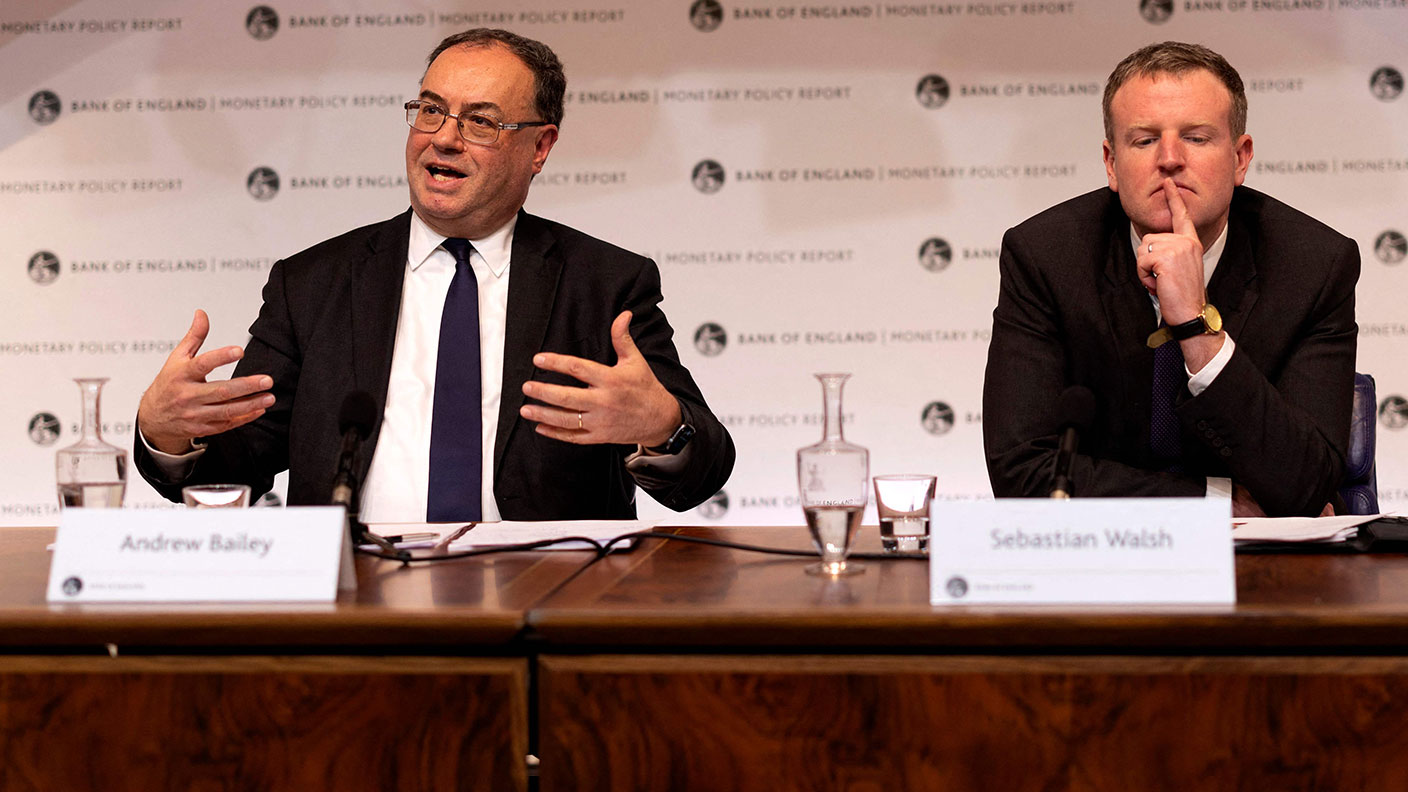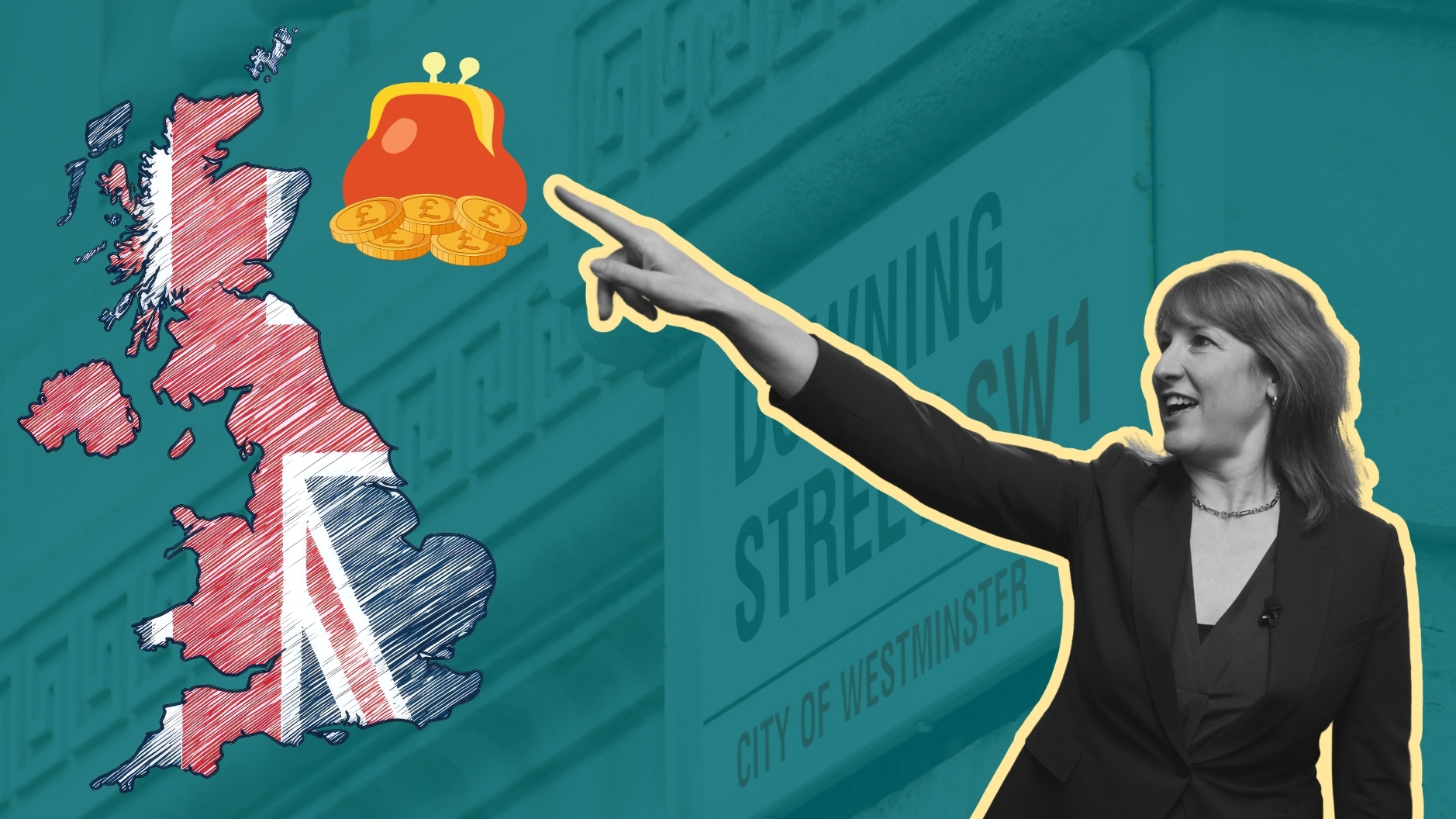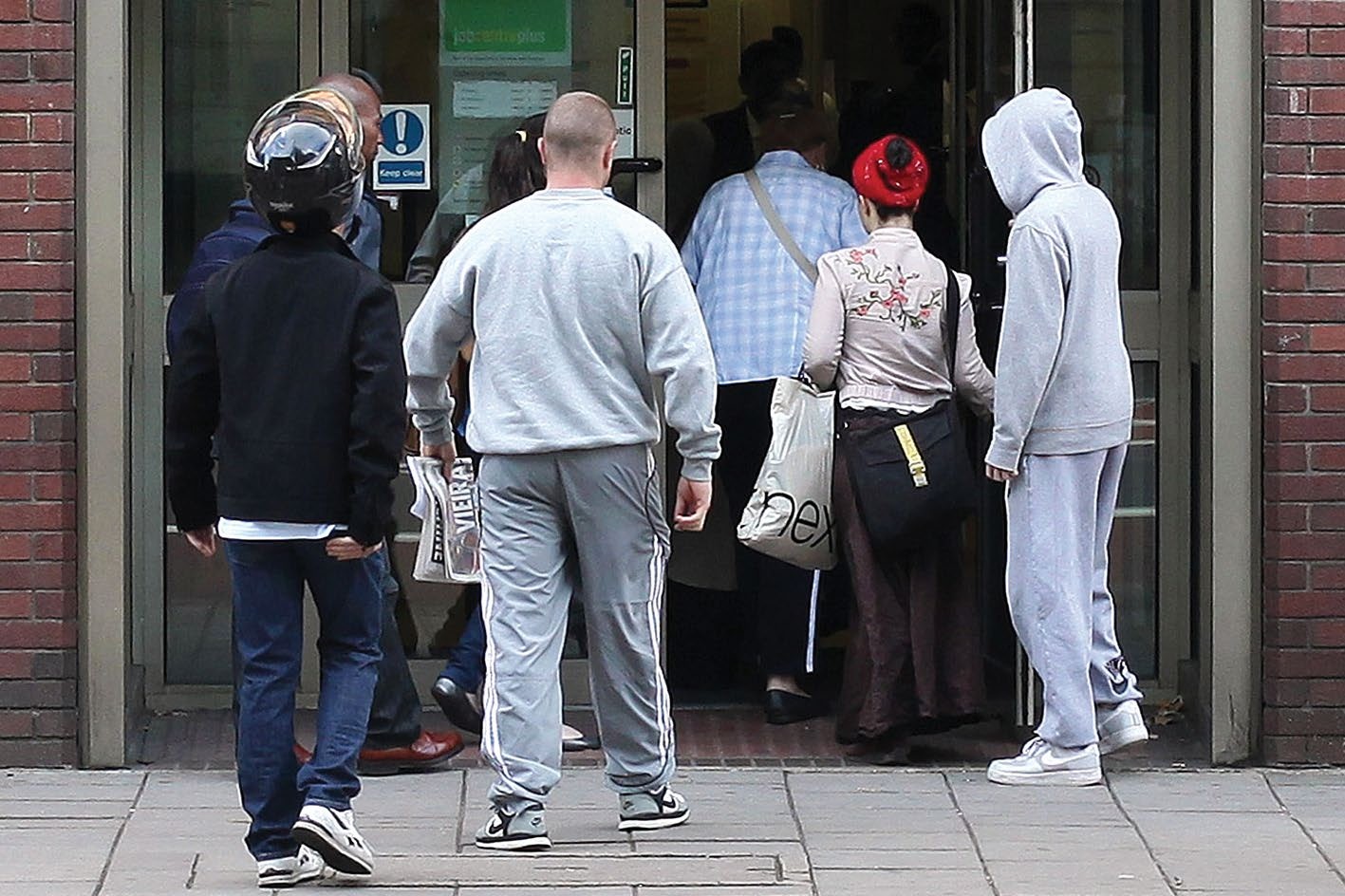UK inflation is now running at 8% a year – how much worse will it get?
On one measure, UK inflation has hit 8% a year – and it’s likely to get worse before it gets better. John Stepek looks for light at the end of the tunnel, and explains what it all means for your money.


Get the latest financial news, insights and expert analysis from our award-winning MoneyWeek team, to help you understand what really matters when it comes to your finances.
You are now subscribed
Your newsletter sign-up was successful
Want to add more newsletters?
Inflation hit a fresh 30-year high last month.
Measured by the consumer prices index, it’s rising at 5.5% a year, a rate not seen since March 1992, when it was 7.1%.
But if I’d been writing this story just 20 years ago, I’d be telling you – as would every other journalist – that inflation is in fact at 8%.
Try 6 free issues of MoneyWeek today
Get unparalleled financial insight, analysis and expert opinion you can profit from.

Sign up to Money Morning
Don't miss the latest investment and personal finances news, market analysis, plus money-saving tips with our free twice-daily newsletter
Don't miss the latest investment and personal finances news, market analysis, plus money-saving tips with our free twice-daily newsletter
And I suspect that would grab your attention rather more vigorously than even the 5.5% headline figure did.
We’ve got shrinkflation in inflation measures
The Bank of England’s current inflation target is 2%. If inflation goes below 1% or above 3% for any persistent period of time, the Bank’s governor has to write a letter to the chancellor to explain why, and what he (so far they’ve all been “hes”) intends to do about it.
The point of this ritual is to underscore the idea that the Bank is independent of the government, and that it’s following a set of rules, rather than doing what’s good for the party in power. In other words, it’s a technocratic institution rather than a political tool.
Andrew Bailey, the current governor, is going to be going through an awful lot of paper and ink at this rate. According to the consumer prices index (CPI), which is currently the Bank’s target measure, inflation rose at an annual rate of 5.5% in January, which is 3.5 percentage points over his target, and 2.5 percentage points above his upper speed limit.
(What he can actually do about this is a trickier question, which is one reason these letters must be a headache to make up.)
However, Bailey might count himself lucky. It could be worse. How?
When I started working as a financial journalist, the Bank of England didn’t use the consumer price index (CPI) as its main target measure of inflation. Instead it used something with the rather clunky acronym RPIX. The target rate for RPIX was a bit higher, at 2.5%.
RPIX stands for “retail price index excluding mortgage interest”. I think this is actually quite a useful reminder of the central bank’s sole inflation-fighting tool, and just how blunt an instrument is.
You see, you exclude mortgage interest because the theory is that when inflation goes up too high, a central bank will raise interest rates to choke it off. Of course, when you raise interest rates, you drive up mortgage interest payments too (less so today, because so many have fixed-rate mortgages, but the principle stands).
So to get a “true” measure of the underlying inflation that the Bank is trying to tackle, you leave out the interest costs.
Anyway, this is now running at an annual rate of 8%. Hence the headline.
You can see how these changes in inflation measures matter: 8% is a lot higher than 5.5%, and 5.5% is a lot higher than the 4.9% CPIH (consumer price index including owner-occupiers’ housing costs) measure, which is actually now the first one you’ll read if you go the Office for National Statistics website.
Funny how the newer the measure, the lower the inflation it detects.
Is there a light at the end of this tunnel?
So what does all this mean for your money?
The obvious answer is that the Bank of England is now very likely indeed to raise interest rates again – to 0.75% – at its next meeting. And we’re going to see a run of these inflation “surprises”, probably until April, which is when the big regulatory jump in home energy bills happens.
Now, after that, we might well see CPI inflation start to fall back. Not because things suddenly get cheaper, but because they won’t be rising in price as rapidly.
Some things might even start falling at some point. One piece of good news on this front, also released early this morning, is that Chinese producer price inflation came in a little bit lower than expected in January. It came in at 9.1% rather than the 9.5% expected, and lower than the 10.3% seen in December.
Clearly, China is an important manufacturer, and if price pressures start to ease up there, then maybe they’ll start to relax elsewhere around the globe.
For my part, I think it’s fair to say that I’m less sanguine about inflation than the majority of people. So far, that’s been the right way to look at it. I think that it’s too easy to think of inflation as something that just needs to pass through the system – we forget that once it gets into the system, it starts to snarl things up further.
Companies change their inventory strategies due to concerns about prices rising in future. Employees become more demanding. Consumers are torn between cutting back and buying while stocks last. Inflation changes behaviour and it’s been so long since it’s been a problem that we’ve forgotten that. Think “just in case” rather than “just in time”.
But even if inflation diminishes later this year, from an investment point of view, there are probably two important things to remember.
One is that this almost certainly spells the end of the 0% interest rate era. That’s a good thing – 0% rates were and are highly distortionary – but getting back to anything higher will involve disruption.
Two is that whatever happens, interest rates are almost certainly not going to rise to the point where you can easily get a positive “real” return on your money any time soon. At MoneyWeek, we say you should always have some cash available to exploit any opportunities you spot, and that view stands – optionality is important.
But in terms of actual savings, there is no point keeping long-term money in cash right now and hoping it’ll go up. It just won’t. Isa season is rolling around soon, and we’re hard at work on an Isa special full of ideas on where to put your money. You’ll be able to read that soon. But one place I wouldn’t be keeping my long-term savings right now is in a savings account.
Get the latest financial news, insights and expert analysis from our award-winning MoneyWeek team, to help you understand what really matters when it comes to your finances.

-
 What do rising oil prices mean for you?
What do rising oil prices mean for you?As conflict in the Middle East sparks an increase in the price of oil, will you see petrol and energy bills go up?
-
 Rachel Reeves's Spring Statement – live analysis and commentary
Rachel Reeves's Spring Statement – live analysis and commentaryChancellor Rachel Reeves will deliver her Spring Statement today (3 March). What can we expect in the speech?
-
 The scourge of youth unemployment in Britain
The scourge of youth unemployment in BritainYouth unemployment in Britain is the worst it’s been for more than a decade. Something dramatic seems to have changed in the labour markets. What is it?
-
 Why Scotland's proposed government bonds are a terrible investment
Why Scotland's proposed government bonds are a terrible investmentOpinion Politicians in Scotland pushing for “kilts” think it will strengthen the case for independence and boost financial credibility. It's more likely to backfire
-
 How have central banks evolved in the last century – and are they still fit for purpose?
How have central banks evolved in the last century – and are they still fit for purpose?The rise to power and dominance of the central banks has been a key theme in MoneyWeek in its 25 years. Has their rule been benign?
-
 UK to have highest inflation among advanced economies this year and next, says IMF
UK to have highest inflation among advanced economies this year and next, says IMFThe International Monetary Fund (IMF) says it expects inflation to remain high in the UK, while lowering economic growth forecasts for 2026.
-
 Is Britain heading for a big debt crisis?
Is Britain heading for a big debt crisis?Opinion Things are not yet as bad as some reports have claimed. But they sure aren’t rosy either, says Julian Jessop
-
 'Britain is on the road to nowhere under Labour'
'Britain is on the road to nowhere under Labour'Opinion Britain's economy will shake off its torpor and grow robustly, but not under Keir Starmer's leadership, says Max King
-
 'Governments are launching an assault on the independence of central banks'
'Governments are launching an assault on the independence of central banks'Opinion Say goodbye to the era of central bank orthodoxy and hello to the new era of central bank dependency, says Jeremy McKeown
-
 Why investors can no longer trust traditional statistical indicators
Why investors can no longer trust traditional statistical indicatorsOpinion The statistical indicators and data investors have relied on for decades are no longer fit for purpose. It's time to move on, says Helen Thomas